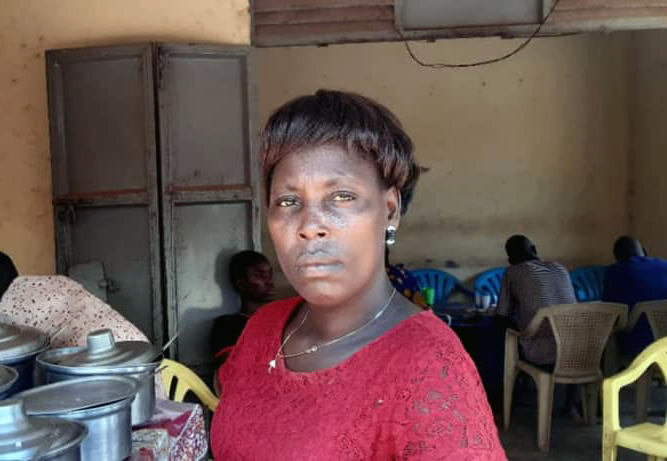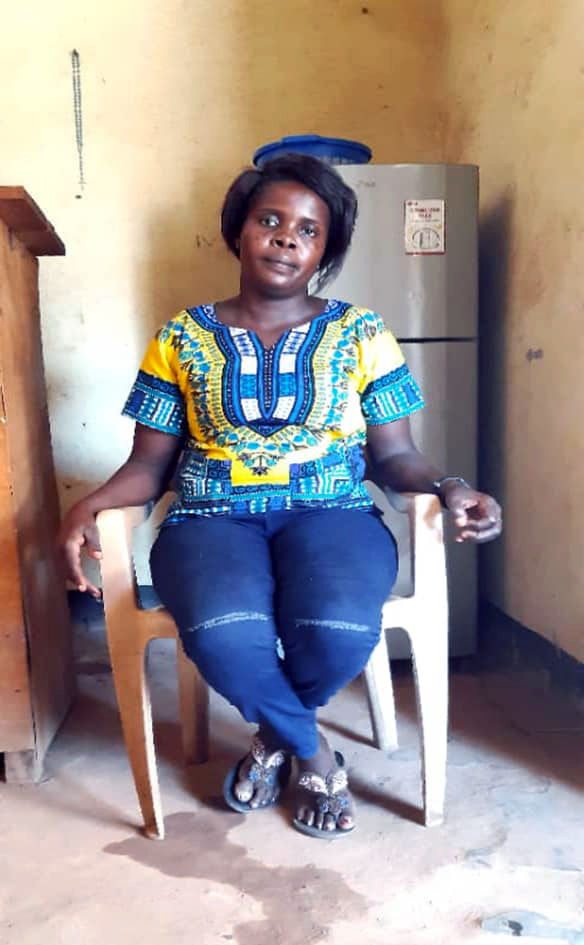Owning a Restaurant in South Sudan During the Pandemic
 Helena Magianga at her restaurant
Helena Magianga at her restaurant
“I’m a single mother and I do solely depend on my bar business to feed my family, to pay for my children to go to school, and to buy medications and clothing,” shared Sidonia. “Ever since the 8:00pm curfew time was imposed and with the banning of bars from being operational, it has now affected me so much that am finding it difficult to sustain my family.”
Helena and Sidonia are restaurant/ bar owners at Masia Market in Yambio, South Sudan. They, like so many around the world, have lost customers and income due to the novel coronavirus. “My regular customers now are few and far between,” shared Helena.
 Sidonia Alfred at her barNot only have they seen a drop in customers since the lockdown started, but they have seen a drop in supplies coming in. With the borders to neighboring countries closed, Helena and Sidonia have seen the prices more than triple for essentials like salt, maize floor, and cooking oil—putting a lot of pressure on their business and their families.
Sidonia Alfred at her barNot only have they seen a drop in customers since the lockdown started, but they have seen a drop in supplies coming in. With the borders to neighboring countries closed, Helena and Sidonia have seen the prices more than triple for essentials like salt, maize floor, and cooking oil—putting a lot of pressure on their business and their families.
The pressure is on, money is scarce, and fears are rising. We know that oftentimes that’s a perfect storm for violence. But, unlike the salt, flour, and oil, our teams are already in the communities where we are needed. Our teams continue working to prevent violence alongside preventing the spread of COVID-19.
“As women, we have experienced trauma throughout our lives. We are pre-occupied in thinking of how to take proper care of children and family members, but it is getting out of hand,” shared Helena. “We have undergone series of emergencies, wars, violence and now this: COVID-19.”
For a community living through violent conflict, the virus is a crisis on top of a crisis. Now, more kids are out of school, prices are high, curfew enforcement can be violent at times, and cases of domestic violence are rising. People fear looting, attacks when no one is watching, and who might have the virus. Staying connected to one another is so important to strengthening a community. But, when the social gatherings stop to prevent COVID-19, a community can feel isolated.
Your support is keeping our protection officers to stay in the communities where they live so that they can continue providing support to women like Helena and Sidonia. With your support, they aren’t isolated.
